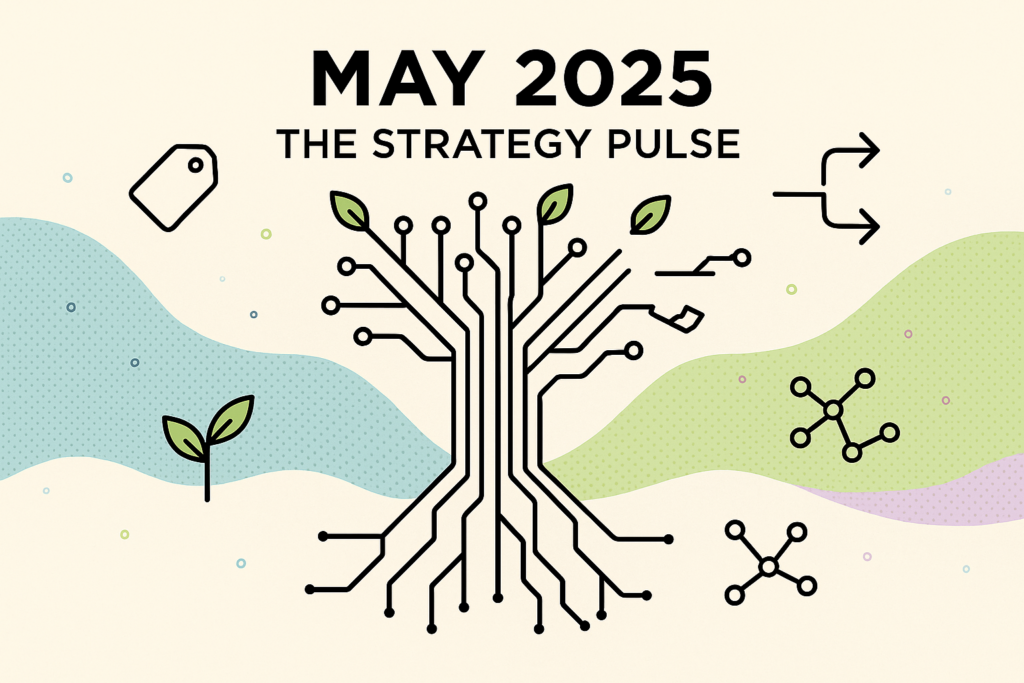Month: September 2022

Quiet Quitting: Cop-Out or Constructive?
Quiet Quitting: Cop-Out or Constructive?
September 26, 2022

In the not-too-distant past, many of us were caught up in the whirlwind of ‘hustle culture’. Perhaps the mere mention of those two little words triggers your fight or flight response, violently jolting you back into an era of 18-hour work days, and nights spent sleeplessly plotting your path to promotion. Work on the brain, 24/7. Like a flock of sheep, many of us marched in unison up the corporate ladder, petrified by the thought of falling out of line and getting trampled by the herd. The buzzwords #ambition, #grit and #grind stoked the fire of this toxic trend on social media.
Entrepreneurship, success, money, prestige. The golden medals that everyone was aching to win in the ‘hustle’ Olympics. LinkedIn profiles became glittering halls of fame, decked out with proudly displayed trophies. The focus was on carefully crafting a public persona of workaholism. It wasn’t enough to be successful. You had to create the impression that you were head-over-heels in love with your career. Drunk on ambition and adrenaline. Your whole identity revolved around it.
But recently, many people seem to be snapping out of this hypnotic spell. ‘Quiet quitting’ is a recent trend that pushes back against ‘hustle culture’. According to a Deloitte study in 2015, at the height of ‘hustle culture’, 77% of workers experienced burnout at work, and thus many are walking away from the toxic ‘hustle’ mindset. Whilst ‘hustle culture’ was born out of the Great Recession of 2008, ‘quiet quitting’ comes in the aftermath of a pandemic that has dragged on for years, leaving many people disillusioned with their work, or else simply determined to lead a life beyond it.
So, what exactly is ‘quiet quitting’? Is it a trend that employers need to be worried about, or is it not as bad as we think?
What is ‘quiet quitting’?
In a video that has now blown up on TikTok, a young man called Zaid Khan coined the term ‘quiet quitting’ to describe his changing attitude towards work. Despite the misleading name, ‘quiet quitting’ doesn’t actually involve quitting your job at all. It simply means doing the job you’re paid for, without going above and beyond.
‘Quiet quitting’ entails following your job description to the letter. Khan rejects the notion that consistent hustling should be the norm. It doesn’t involve neglecting your duties, but rather setting clear boundaries that you refuse to transgress. ‘Quiet quitters’ are resetting the standard, refusing to make work the centre of their universe. According to a Gallup survey, at least half of US workers are quiet quitting their jobs. Post-pandemic, the trend is particularly evident amongst young people.
Should we be worried?
Whilst there are many potential reasons why someone may choose to ‘quiet quit’ their job, a toxic workplace culture may very well be one of them. Employers may need to take a look in the mirror when asking themselves why employees are not pushing the boat out when it comes to work. Some argue that ‘quiet quitting’ is, by its very nature, semi-confrontational. It could be seen as a way for employees to register the frustration and disconnect they feel with the organisation they’re working for.
According to Gallup data, workers below the age of 35 in particular are growing disengaged at work. The percentage of engaged employees in this age group fell by 6 percent from 2019 to 2022. Meanwhile, the number of young employees who feel cared for by their employers, or think that they have opportunities to learn and grow professionally, fell by 10 percentage points. In this respect, ‘quiet quitting’ appears to be a way for employees to pushback against neglect from their employers. If employers aren’t investing in employee welfare, why should they be going above and beyond for the sake of a company that doesn’t care about them? If managers want a strong work ethic pulsing through the company, they need to find innovative ways to make employees feel looked after and engaged in the company mission. When someone feels like they’re a crucial piece of the puzzle – valuable, and part of something bigger – they’re more likely to be a proactive team player.
And being a team player can actually benefit them on a personal level, too. ‘Quiet quitting’ may not be as liberating for employees as it may seem at face-value. By swearing off any work that does not fall under your job description, you may actually be making your work more arduous and uninspiring than it needs to be. If you’re clocking off at 5pm on the dot and refusing to build relationships with colleagues, you could be killing any chances of cultivating a workplace community. You could be missing out on some of the most exciting and enriching parts of your working life if you refuse to truly immerse yourself in it.
If you’re unhappy in your career, is ‘quiet quitting’ really the answer? To many, it feels like an intrinsically hostile approach to take. A lot of critics regard it as a form of silent mutiny. If you’re not content with your job, perhaps it would be wiser and more beneficial for both parties to have a candid conversation with your employer, to discuss pain points and potentially find a solution. Or else, to look for a more inspiring role elsewhere.
Or is it even a thing?
However, all of this is to suggest that there’s a problem with ‘quiet quitting’ in the first place. Is there actually anything fundamentally wrong with simply doing your job?
The fact that ‘quiet quitting’ is proving to be such a shocking phenomenon to many – one that is making headlines – shows that society is still very much stuck in the ‘hustle culture’ mindset. It suggests that workers simply performing their job without doing additional work, just doing what they’re paid to do, is some kind of sin. In reality, should we be moving away from this unspoken societal rule that puts a pressure on the individual to push themselves to the brink in order to succeed professionally?
Whilst it’s very easy to suggest that someone simply quit their job and go down a career path that grips their interest more, this isn’t always possible. Many people aren’t in the privileged position to be able to up-sticks and leave their job in pursuit of something more enjoyable and personally fulfilling. In times of economic uncertainty, it may feel safer to stay on in a secure role and simply do what is expected of you rather than seek a job elsewhere. Not everyone has the opportunity to find a job that they’re passionate about.
Ultimately, what matters more than anything is the reasoning behind ‘quiet quitting’. It’s not always meant as a passive aggressive protest against working hard. Sometimes, it’s a way for employees to take back their personal power. ‘Quiet quitting’ isn’t inherently a bad thing. So long as employees are performing as expected there’s no reason that they shouldn’t be dedicating more time to their lives outside the office. In fact, it could actually be a good thing. Creating a healthy work-life balance can improve the quality of your work, whilst excessive stress and workplace pressure can be detrimental to the company as well as the individual.
The only time when ‘quiet quitting’ could be concerning is when there’s a truly spiteful sentiment fuelling it. In which case, it’s worth having a candid conversation to resolve whatever issue may be causing it. When an employee wants to take revenge on a company, or sees ‘quiet quitting’ as a way of flaunting their entitlement, it should be addressed, both for the sake of the individual and the business. However, in the vast majority of cases, ‘quiet quitting’ isn’t a problem at all. As long as it’s not being done for the wrong reasons, it’s just a means of establishing healthy boundaries and taking back the agency to find an identity beyond the office walls.

Red Flags in Job Ads
Red Flags in Job Ads
September 8, 2022

Online dating is a necessary evil in the world of modern romance. The vast majority of singletons in this day and age have resorted to dating apps at some point or another. You become trapped in a viscous cycle, as you redownload Hinge and Tinder out of boredom, swipe mindlessly for hours on end, muster up the energy to respond to a few uninspiring matches, before growing frustrated and deleting it all over again.
If this sounds like an eerily familiar experience, chances are you’re well-versed in spotting red flags in a potential suitor. When you spend long enough on the apps, you develop a kind of sixth sense, a superpower that instantly defends you against falling into a toxic relationship. You know, for example, to swipe left on a portfolio of exclusively shirtless selfies. You’re saving yourself a lot of time and energy in the long run.
But do you have the same level of vigilance when job hunting? Looking for a new career is similar to dating. You need to figure out if the company is a good match for you, and warning signs can rear their head as early as the initial application stages. Job postings may be rife with clues that inadvertently put you off applying, and it’s crucial that you know how to find them.
Don’t sell yourself short
It’s unsurprising that pay range is one of the first things candidates look for on a job ad. It’s the equivalent of that first photo on a dating profile; it’s the first impression that very quickly helps you decide whether to swipe right or left.
The pay range section of a job posting can very easily become a breeding ground for red flags. According to a recent survey by Paychex, 65% of job seekers are instantly put off when companies refuse to include a salary on their job ad. You expect the worst, assuming that the pay is lower than average.
When a salary is included, but it’s significantly lower than industry standards, it’s easy to want to dismiss it right away. Whilst it’s important to know your worth and not sell yourself short, you shouldn’t write it off completely. Do some more digging; if the company is willing to compensate you in other ways – with a competitive benefits package, for example – they may be able to make up for a slight reduction in pay. This comes down to personal preference, and the ball is in your court.
Great expectations
Whilst every job has its requirements, an employer’s expectations should always be clear, concise, and reasonable. When a huge chunk of a job ad is taken up by a series of bullet points detailing the experience and skills necessary for the role, this could be a major red flag. If it reads more like a grocery shopping list than a job posting, you know you’ve got a problem.
A long list of requirements could reveal a host of problems with the company. If they’re looking for a candidate with the skillsets and specialisms of five different roles combined in one superhuman person, this is a tell-tale sign that something is amiss. It could indicate that the hiring manager actually has no idea themselves what they’re looking for. They’ve built up a hyper-idealised profile of a candidate that simply doesn’t exist. If they can’t explicitly lay out what they’re looking for, how on earth would they be able to support you in the role?
Or perhaps they’re excessively hard to please. If it’s an entry-level role that requires three years of experience, for example, they may not be sympathetic to the challenges of the job search. If they’re placing these unrealistic expectations on you before you’ve even applied for the role, how will they behave once you’ve stepped foot in the office? Be wary of a job ad that doesn’t shy away from telling you all about their unfalteringly high standards.
Read between the lines
In job postings, it all comes down to the wording. Channel your inner English Language GCSE student, analysing the phrasing and language used. When you read a job ad carefully, you’ll often find that the personality of the company shines through.
If a job ad is studded with phrases like “competitive and fast-paced environment” to describe the workplace, or if it uses adjectives like “flexible” or “highly self-motivated” to describe their ideal candidate, this may be a tell-tale sign of a toxic work environment that places heavy demands on its employees. When decoded, this often translates to working late or on weekends, and competing with co-workers. Whilst some may thrive in this type of workplace, it’s definitely not for everyone.
Also, if a job posting attempts to win you over with the promise of “gaining experience” – especially in an entry level role – this could be a thinly-veiled sign that they’re exploiting your lack of expertise to make you work for less.
And, obvious as it may sound, spelling mistakes are a major red flag. They stick out awkwardly on the page like a sore thumb. There’s nothing more frustrating than spending hours crafting and honing your CV to perfection, checking every last detail for errors, only to encounter an easily avoided spelling mistake in the first sentence of a job ad.
It’s not me, it’s you
Imagine going on a date with a narcissist. Sat opposite you, they embark on a monologue about themselves, barely pausing to take a breath, for fear that you might dare to interrupt their solo act. Whilst they take centre stage, you sip your wine and roll your eyes, an unwilling audience of one to their tragic performance. They won’t ask you any questions about yourself, obviously.
Well, employers can have narcissistic tendencies too. And it may be possible to find signs of a self-centred employer in the job ad in front of you. When the job posting is excessively one-sided, laying out everything they expect from you in excruciating detail, you should be cautious. Whilst reading a job ad, you need to ask yourself the question: what’s in it for me?
What are the exciting elements of the job? What sets this company apart from the rest? How do they reward and invest in their employees? If you come to the end of a job ad and still can’t answer these questions, it’s a red flag.
Companies need to compose compelling job postings that draw in top talent. If they’re not doing this, they could be showing their true colours.
Now, if you happen to encounter any of these red flags in a job posting, don’t fret. Just like dating, there’s plenty more fish in the sea.

